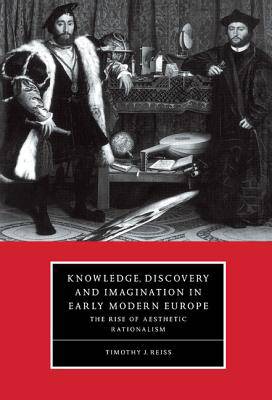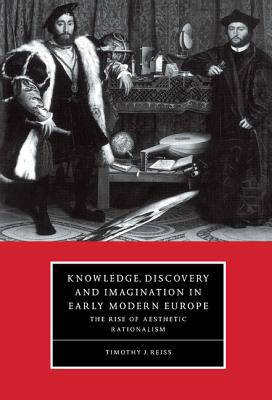
Bedankt voor het vertrouwen het afgelopen jaar! Om jou te bedanken bieden we GRATIS verzending (in België) aan op alles gedurende de hele maand januari.
- Afhalen na 1 uur in een winkel met voorraad
- In januari gratis thuislevering in België
- Ruim aanbod met 7 miljoen producten
Bedankt voor het vertrouwen het afgelopen jaar! Om jou te bedanken bieden we GRATIS verzending (in België) aan op alles gedurende de hele maand januari.
- Afhalen na 1 uur in een winkel met voorraad
- In januari gratis thuislevering in België
- Ruim aanbod met 7 miljoen producten
Zoeken
Knowledge, Discovery and Imagination in Early Modern Europe
The Rise of Aesthetic Rationalism
Timothy J Reiss
€ 172,95
+ 345 punten
Uitvoering
Omschrijving
Recent explanations of changes in early modern European thought speak much of a move from orality and emphasis on language to print culture and a "spatial" way of thinking. Timothy J. Reiss offers a more complex explanation for the massive changes in thought that occurred. He describes how, while teaching and public debate continued to be based in the language arts, scientific and artistic areas came to depend on mathematical disciplines, including music, for new means and methods of discovery, and as a basis for wider sociocultural renewal.
Specificaties
Betrokkenen
- Auteur(s):
- Uitgeverij:
Inhoud
- Aantal bladzijden:
- 262
- Taal:
- Engels
- Reeks:
- Reeksnummer:
- nr. 15
Eigenschappen
- Productcode (EAN):
- 9780521582216
- Verschijningsdatum:
- 13/03/1997
- Uitvoering:
- Hardcover
- Formaat:
- Genaaid
- Afmetingen:
- 152 mm x 229 mm
- Gewicht:
- 553 g

Alleen bij Standaard Boekhandel
+ 345 punten op je klantenkaart van Standaard Boekhandel
Beoordelingen
We publiceren alleen reviews die voldoen aan de voorwaarden voor reviews. Bekijk onze voorwaarden voor reviews.









